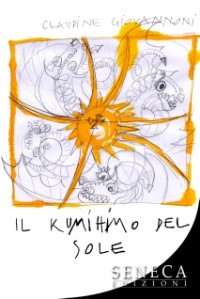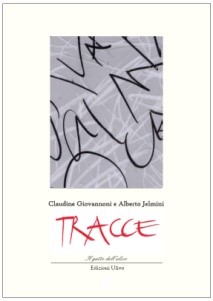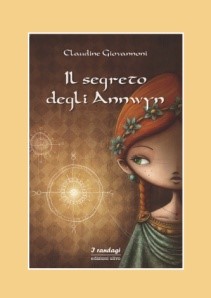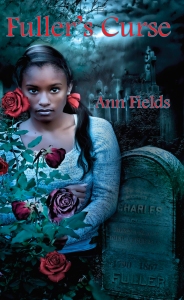Today we sit down with author Jon Stenhugg to hear a bit about his work and his inspiration.
Please enjoy this edition of 20 Questions:
 Q1) When did you first realize you wanted to be a writer?
Q1) When did you first realize you wanted to be a writer?
My family was filled with story tellers, and I discovered I’d picked up a few tips during the first few years of school. By the time I began University I knew I was going to write for the rest of my life, I just didn’t know how.
Q2) How long does it typically take you to write a book?
Longer than I’d like. My first book, The Second Child, didn’t begin as a novel. I didn’t know if I could actually do that until it was finished. From idea to cover blurb took about ten years. The second book took much less time, thank God. I’d say no less than a year, now that I’ve learned more about the craft.
Q3) What is your work schedule like when you’re writing?
When the fire is in me, I write every night, about two or three hours after it’s become quiet. If I’ve run into a problem with part of the plot that doesn’t seem to work, or unruly characters, then I usually pause work on that one, and work on shorter pieces for awhile.
Q4) What would you say is your interesting writing quirk?
I’m not sure what you mean. I often hold silent conversations with my characters to find out what they want in a scene. And I scold them until I get an answer, is that quirky? I think everyone does that.
Q5) How are your books published? (traditional, indie, etc.)
I chose something in between; a self-publishing firm with the staff and experience of a smaller traditional publisher. Even though I pay for the risk of publishing, I get all the help I need. However, I’d still like the power of a traditional publisher behind me one day.
Q6) Where do you get your ideas for your books?
I look for some historical event many people have heard of, but where some grey areas are disputed. I fit my characters into something related to the event, take a side regarding the disputed events, and then begin a plot line. Not all ideas work right away, however, so I have a box full of unrealized ideas.
Q7) If you don’t mind sharing, when did you write your first book and how old were you (or how many years ago was it)?
My first novel was published a year ago. I was shocked to learn that after I retired I was considered to be a geriatrics patient in the Swedish medical system. I have refused to talk about my age since then.
Q8) What do you like to do when you’re not writing?
Now you’re getting really personal, Don. Vegetable gardening, fishing, and cooking the results. And reading. I love to read.
Q9) What is your favorite book?
No such animal. I read everything. Non-fictional works on science, philosophy, and history. When it comes to fiction I usually tend to read alternate history or technical thrillers.
Q10) What do your family and friends think of your writing?
Most of them are very supportive. Even the ones who never read the kind of books I write.
Q11) What was one of the most surprising things you learned in creating your books?
I use a lot of history as part of my story and spend many hours researching events tied to my plot. Many times during the fact-checking phase of editing, I was surprised to find that scenes I had written beyond the research available at the time fitted perfectly with what had actually happened, even though I didn’t know it when I wrote the scene. Was it the muse whispering in my ear? I don’t know, just that it happened on more than one occasion.
Q12) What do you hate most about the writing process?
I work from a fairly detailed book plan, with rough outlines of major scenes. During the writing phase, some of these scenes don’t work and I find this frustrating. Worst case, I have to re-work major portions of the book plan because the original scene I imagined cannot be used in that book.
Q13) How many books have you written? Which is your favorite?
I have finished three books. One book of short stories published using my real name, and two novels using my pen name, Jon Stenhugg. My favourite is the second novel, yet unpublished.

Q14) Do you have any suggestions to help us become better writers? If so, what are they?
Too many to put into an interview! I read differently now that I’ve begun to write, and spend a lot of time examining why certain novels work so well. I used critique groups to help me understand what worked and what didn’t with my own storytelling. There are many books to help writers today, and most of them seem to provide useful tips. Also, find a way to get the stamina to keep writing. Writers are part of a long and lonely process. Each one of us has a different way to keep ourselves going. Asking yourself what you have to do to become the best writer in your genre is also necessary. What do you need, better tools, discipline, support? Whatever it is, identify it, then go about getting it.
Q15) Do you get feedback from your readers much? How and what kinds of things do they say?
Some, but it’s never enough. Hearing that a reader has never read anything like what I write is flattering, but I’d like to know how my work touched them. I don’t suppose I’ll ever get an answer to that.
Q16) What is your preferred reading audience?
I try to write for anyone looking for a good story. I have noticed that more women read my novels than men, but I think that’s a general trend for all literature.
Q17) What do you think makes a good story?
Anything that grabs a reader from the first line, and keeps the reader engaged until the last word in the story has been told.
Q18) As a child, what did you want to do when you grew up?
I wanted to write for a living. When I think back, many of the jobs I have had involved writing, but it wasn’t until I retired that I could spend time improving my skill as a fiction writer. I also wanted to become an astronaut, and if I could I’d still like a shot at that. I suppose that proves that I’ve never really grown up.
Q19) Where can we find your books?
The Second Child is available via the publisher, SilverWood Books in the UK, or worldwide through Amazon or Barnes & Noble, printed or digital. In Australia, Booktopia also offers it both as a printed work or a digital download. iTunes or iBooks carries the digital version only. Some local independent books stores in Stockholm, Sweden also carry my work.
Q20) Will you give us an excerpt from one of your own favorite works?
I love to read Dylan Thomas. Here’s an excerpt from a story he wrote in 1945 about a village he was fond of.
“Quite early one morning in the winter in Wales, by the sea that was lying down still and green as grass after a night of tar-black howling and rolling, I went out of the house, where I had come to stay for a cold unseasonable holiday, to see if it was raining still, if the outhouse had been blown away, potatoes, shears, rat-killer, shrimpnets, and tins of rusty nails aloft on the wind, and if all the cliffs were left.”
What a way to begin a story! I catch myself trying to use descriptions like that in my own work, but I’ll never be as good it as he was.
About Jon Stenhugg:
Jon Stenhugg is the pen name of a Swedish author, born and raised in Northern California. He traveled to Europe in the late 60’s, finally residing in Stockholm, Sweden, where he completed a Fil. Kand. degree in Education and Psychology at Stockholm University. He has worked as a teacher trainer, an administrator for the University of Falun and as an administrator for the Swedish National School Board. He formed his own company during the last nineteen years of his career in Sweden, marketing computer products to industrial companies in Ireland and Scandinavia. He now resides with his wife just south of Stockholm.
Jon published a mimeographed student newspaper in the sixth grade, and later used his talent as an advertising copywriter for publishing houses such as McGraw Hill and Prentice Hall. He loves to write fiction, especially fiction based on historical events. He has finished two novels and is working on a third.
Find Jon’s Work:
https://itunes.apple.com/us/book/the-second-child/id989259037?mt=11
https://www.amazon.com/Second-Child-Jon-Stenhugg/dp/1781323305
http://www.barnesandnoble.com/w/the-second-child-jon-stenhugg/1121840409
http://www.booktopia.com.au/the-second-child-jon-stenhugg/prod9781781323304.html
http://www.silverwoodbooks.co.uk/product/9781781323304/the-second-child

 Q1) When did you first realize you wanted to be a writer?
Q1) When did you first realize you wanted to be a writer? I ate Tiong Bahru
I ate Tiong Bahru 



 Q1) When did you first realize you wanted to be a writer?
Q1) When did you first realize you wanted to be a writer? Il Kumihimo del Sole (novel – Seneca Edizioni Torino 2006 ¦ Italian)
Il Kumihimo del Sole (novel – Seneca Edizioni Torino 2006 ¦ Italian) Il Cristallo della Pace (novel – Seneca Edizioni Torino 2010 ¦ Italian)
Il Cristallo della Pace (novel – Seneca Edizioni Torino 2010 ¦ Italian) Nebbie nella Brughiera (novel – Seneca Edizioni Torino 2009 ¦ Italian)
Nebbie nella Brughiera (novel – Seneca Edizioni Torino 2009 ¦ Italian) I quattro Elementi (illustrated story – Macromedia Edizioni Torino 2010 ¦ Italian)
I quattro Elementi (illustrated story – Macromedia Edizioni Torino 2010 ¦ Italian) Tracce (poetry anthology – Edizioni Ulivo Balerna 2011 ¦ Italian)
Tracce (poetry anthology – Edizioni Ulivo Balerna 2011 ¦ Italian) Il Segreto degli Annwyn (novel – Edizioni Ulivo Balerna ¦ Italian)
Il Segreto degli Annwyn (novel – Edizioni Ulivo Balerna ¦ Italian) Q1) When did you first realize you wanted to be a writer?
Q1) When did you first realize you wanted to be a writer? Q1) When did you first realize you wanted to be a writer?
Q1) When did you first realize you wanted to be a writer?

 Q1) When did you first realize you wanted to be a writer?
Q1) When did you first realize you wanted to be a writer?

 Excerpt
Excerpt
 FULLER’S CURSE
FULLER’S CURSE Q1) When did you first realize you wanted to be a writer?
Q1) When did you first realize you wanted to be a writer? It’s like asking someone to pick their favorite child. I’ve written two children’s books, The Rescuers and The Knights of Ugly (the second is in the illustration phase), and one novel. I love them all! But I have a special place in my heart for a short story I wrote titled “Echoes in the Attic”. If I say why I like it, I would spoil it, but this is one of those ideas that came to me in a dream.
It’s like asking someone to pick their favorite child. I’ve written two children’s books, The Rescuers and The Knights of Ugly (the second is in the illustration phase), and one novel. I love them all! But I have a special place in my heart for a short story I wrote titled “Echoes in the Attic”. If I say why I like it, I would spoil it, but this is one of those ideas that came to me in a dream. Q1) When did you first realize you wanted to be a writer?
Q1) When did you first realize you wanted to be a writer? Scamper!
Scamper! Q1) When did you first realize you wanted to be a writer?
Q1) When did you first realize you wanted to be a writer?



